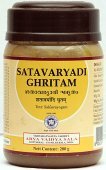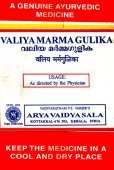Tuka, Ṭūka, Ṭuka: 8 definitions
Introduction:
Tuka means something in Hinduism, Sanskrit, Marathi, Hindi, Tamil. If you want to know the exact meaning, history, etymology or English translation of this term then check out the descriptions on this page. Add your comment or reference to a book if you want to contribute to this summary article.
Alternative spellings of this word include Took.
In Hinduism
Ayurveda (science of life)
Kalpa (Formulas, Drug prescriptions and other Medicinal preparations)
Source: Shodhganga: Edition translation and critical study of yogasarasamgrahaTukā (तुका) refers to the medicinal plant known as “Maranta arundinacea Linn.” and is dealt with in the 15th-century Yogasārasaṅgraha (Yogasara-saṅgraha) by Vāsudeva: an unpublished Keralite work representing an Ayurvedic compendium of medicinal recipes. The Yogasārasaṃgraha [mentioning tukā] deals with entire recipes in the route of administration, and thus deals with the knowledge of pharmacy (bhaiṣajya-kalpanā) which is a branch of pharmacology (dravyaguṇa).

Āyurveda (आयुर्वेद, ayurveda) is a branch of Indian science dealing with medicine, herbalism, taxology, anatomy, surgery, alchemy and related topics. Traditional practice of Āyurveda in ancient India dates back to at least the first millenium BC. Literature is commonly written in Sanskrit using various poetic metres.
Languages of India and abroad
Marathi-English dictionary
Source: DDSA: The Molesworth Marathi and English Dictionaryṭūka (टूक).—f The secret or key of a contrivance or process; the art, way, trick, knack, mystery. v sādha, sāmpaḍa. 2 Knack, readiness, address, facility, lucky dexterity; also taste, tact, genius; quick discernment and relish or natural aptitude and ability. 3 (ṭōṅka Point, The pointing or indications of.) The inherent or appertaining wants or requirements; the exigencies or occasions (of man, animals, or things). Ex. śētācī ṭūka sambhāḷalī pāhijē We must be careful to manure, sow, weed, water &c. all in due season; ghōḍyācī ṭūka sambhāḷā Give the horse his grain, water &c. exactly at the usual hour; tyā jhāḍācī ṭūka yathāsthita rākhalī mhaṇajē phaḷēṃ dharatīla; tyā tyā padārthācē ṭukēsa japalēṃ mhaṇajē tō padārtha cāṅgalā hōtō; pōrācī ṭūka cukalī mhaṇūna raḍatō; jēvaṇācī ṭūka cukalī prakṛti bighaḍalī. 4 Earnest and intent gaze; fixed and longing look. jēvaṇa ṭukēvara ṭhēvaṇēṃ To be careful or particular in eating; i. e. to be observant of all the intimations of our constitution or state of health respecting the times and seasons of eating, and the quantity, quality, and cookery of our food. dhanyā- cī ṭūka sambhāḷaṇēṃ To be regardful of all the indications of our master's will. ṭukēnēṃ jēvaṇēṃ-nijaṇēṃ-bōla- ṇēṃ-auṣadha ghēṇēṃ or dēṇēṃ-kāṃhīṃ ēka karaṇēṃ To eat-sleep- speak-take or administer medicine-do any thing, observing the pointing or bearing, the claim or call of. ṭūka is used with dhara, sambhāḷa, rākha when observance or regard is to be expressed, and with cuka, ṭaḷa, antara in expression of neglect.
--- OR ---
tūka (तूक).—f (Or tukala) A kind of paper kite.
--- OR ---
tūka (तूक).—n (Poetry.) Weighing. 2 (Poetry.) The 16th part of a niṣka or 2½ māṣa. 3 (Poetry.) Weight, quantity determined by weighing. Ex. tayācē tukīṃ kōṇa dujā tukāvā; tūka sakaḷāñcēṃ gōviṃ- dācē hātīṃ. ("The Lord pondereth the hearts." See Prov. XXI. 2 & Ps. XI. 4.) 5 The fourth part of a stanza, or a verse or small part of a ballad or song: also the dhrupada or pālupada (bob or chorus). tukīṃ tukaṇēṃ To weigh or compare with.
Source: DDSA: The Aryabhusan school dictionary, Marathi-Englishṭūka (टूक).—f The secret or key of a contrivance or process. v sādha, sāmpaḍa. Knack, readi- ness. The inherent or appertaining wants or requirements; the exigencies or occasions (of man, animals, or things). Earnest and intent gaze; fixed and longing look. jēvaṇa ṭukēvara ṭhēvaṇēṃ To be careful or particular in eating. dhanyācī ṭūka sambhāḷaṇēṃ To be regardful of all the indications of our master's will.
--- OR ---
tukā (तुका) [-kkā, -क्का].—m A blunt arrow; fig. a covert reproof.
--- OR ---
tūka (तूक).—n (Poetry.) Weighing. The 16th part of a niṣka. Weight. tukīṃ tukaṇēṃ Weigh and compare with.
Marathi is an Indo-European language having over 70 million native speakers people in (predominantly) Maharashtra India. Marathi, like many other Indo-Aryan languages, evolved from early forms of Prakrit, which itself is a subset of Sanskrit, one of the most ancient languages of the world.
Sanskrit dictionary
Source: Cologne Digital Sanskrit Dictionaries: Monier-Williams Sanskrit-English DictionaryTuka (तुक):—m. Name of an astronomer.
Sanskrit, also spelled संस्कृतम् (saṃskṛtam), is an ancient language of India commonly seen as the grandmother of the Indo-European language family (even English!). Closely allied with Prakrit and Pali, Sanskrit is more exhaustive in both grammar and terms and has the most extensive collection of literature in the world, greatly surpassing its sister-languages Greek and Latin.
Hindi dictionary
Source: DDSA: A practical Hindi-English dictionary1) Ṭūka (टूक) [Also spelled took]:—(nm) a piece, fragment, part; -[ṭūka honā] to be broken into pieces, to be shattered.
2) Tuka (तुक) [Also spelled tuk]:—(nf) rhyme; sense; harmony; ~[baṃdī] rhyming, improvising verses; —[baiṭhanā] to rhyme; to harmonise, to co-ordinate; —[meṃ tuka milānā] to chime in, to sing in the same strain, to attune (to somebody else); —[honā] ([bātacīta ādi meṃ]) to be rational, to make a sense.
...
Kannada-English dictionary
Source: Alar: Kannada-English corpusTūka (ತೂಕ):—
1) [noun] the amount or quantity of heaviness or mass; amount a thing weighs; weight.
2) [noun] (phys.) the force that gravitation exerts upon a body, equal to the mass of the body times the local acceleration of gravity; weight.
3) [noun] the act of weighing a thing (usu. using a balance).
4) [noun] any of the units of heaviness or mass; weight.
5) [noun] a particular unit of weight of earlier times.
6) [noun] that much quantity or weight (as water) a person can carry in both the hands.
7) [noun] mental balance or emotional stability.
8) [noun] an equal or common status, ability, eminence, etc.
9) [noun] solemnity or sedateness of manner or character; earnestness; gravity.
10) [noun] (obs.) a kind of tax.
11) [noun] the act of moving back to forth or from side to side; oscillation.
12) [noun] ತೂಕ ತಪ್ಪು [tuka tappu] tūka tappu to lose one’s mental balance or to go wrong in judgement (as from arrogance, emotional imbalance, etc.); ತೂಕದ ಗುಂಡು [tukada gumdu] tūkada guṇḍu a heavy metal ball, with a pointed projection at the bottom, hung with the help of a thread, used by masons to check the perpendicularity of structures being built; ತೂಕದ ಮನುಷ್ಯ [tukada manushya] tūkada manuṣya a man of balanced mind having solemn, sedate character; he whose words carry respect; ತೂಕದ ಮಾತು [tukada matu] tūkada mātu an opinion of a person having balanced mind and sedate character; ತೂಕ ಮಾಡು [tuka madu] tūka māḍu to find the mass or weight of a thing (using a balance); 2. to judge the quality or worth of; to appraise; 3. (fig.) to sleep lightly; to doze; to drowse; ಒಂದು ತೂಕ ಏರು [omdu tuka eru] ondu tūka ēru to assume (sometimes, undue) importance; ಒಂದು ತೂಕ ಹೆಚ್ಚು [omdu tuka heccu] ondu tūka heccu (comparatively) excelling another in quality, importance, etc.
Kannada is a Dravidian language (as opposed to the Indo-European language family) mainly spoken in the southwestern region of India.
Tamil dictionary
Source: DDSA: University of Madras: Tamil LexiconTuka (துக) [tukattal] 11 intransitive verb perhaps from துவர்-. [thuvar-.] To be bitter; கசத்தல். (இலக்கியச் சொல்லகராதி) [kasathal. (ilakkiyas sollagarathi)]
Tamil is an ancient language of India from the Dravidian family spoken by roughly 250 million people mainly in southern India and Sri Lanka.
See also (Relevant definitions)
Starts with (+31): Tuka benang, Tukaar, Tukabandi, Tukada, Tukadabapu, Tukadamodya, Tukadi, Tukadike, Tukadimuraka, Tukadisu, Tukadu, Tukadya, Tukadyaci Coli, Tukagumdu, Tukah, Tukai, Tukai benai, Tukaiyal, Tukajyotirvid, Tukakshiri.
Ends with (+273): Adbhutakautuka, Agamtuka, Agantuka, Aghatuka, Agnikautuka, Ahaituka, Ahetuka, Ahnikakautuka, Akatuka, Amlavastuka, Ammora rohituka, Amoora rohituka, Amtuka, Angahetuka, Anrituka, Anunavastuka, Anutuka, Apaduddharabatuka, Apartuka, Apatuka.
Full-text (+58): Tukakshiri, Tuk, Took, Duga, Sutuka, Pangila, Tukam, Duge, Tamarat-tuka, Na s'tuka, Tuka benang, Dvika, Avitaavadi, Tukala, Icchadani, Tukajyotirvid, Avadi, Kedhavam, Prastavanem, Bhandai.
Relevant text
Search found 4 books and stories containing Tuka, Ṭūka, Tūka, Tukā, Ṭuka, Thuka, Thuga, Duga, Dhuga; (plurals include: Tukas, Ṭūkas, Tūkas, Tukās, Ṭukas, Thukas, Thugas, Dugas, Dhugas). You can also click to the full overview containing English textual excerpts. Below are direct links for the most relevant articles:
Amaravati Art in the Context of Andhra Archaeology (by Sreyashi Ray chowdhuri)
Epigraphs from Amarāvatī (d) The Tulakica or Banker < [Chapter 4 - Survival of Amarāvatī in the Context of Andhra Art]
Rig Veda (translation and commentary) (by H. H. Wilson)
Sense of Separation in Mystic Life < [April 1939]
Tulsidasa's Devotional Poetry < [April – June, 1984]
Thyagaraja and the Bhakti Movement < [February 1937]
Bhagavad-gita-rahasya (or Karma-yoga Shastra) (by Bhalchandra Sitaram Sukthankar)
Related products


